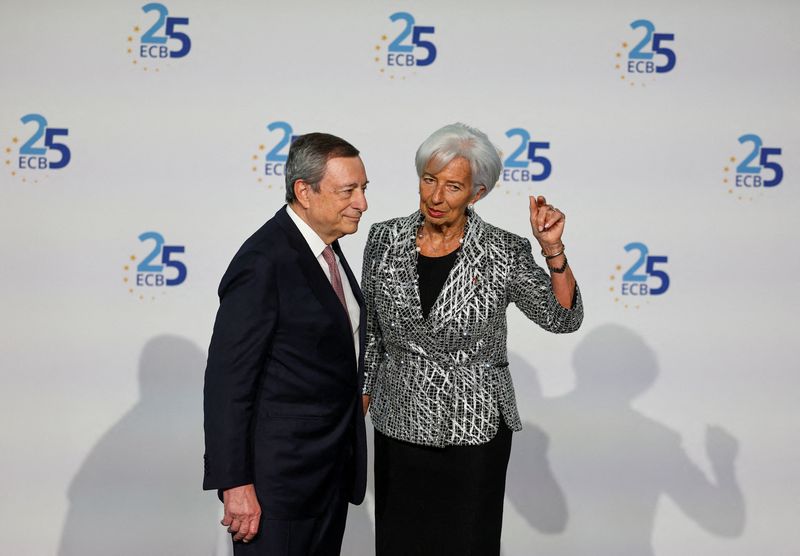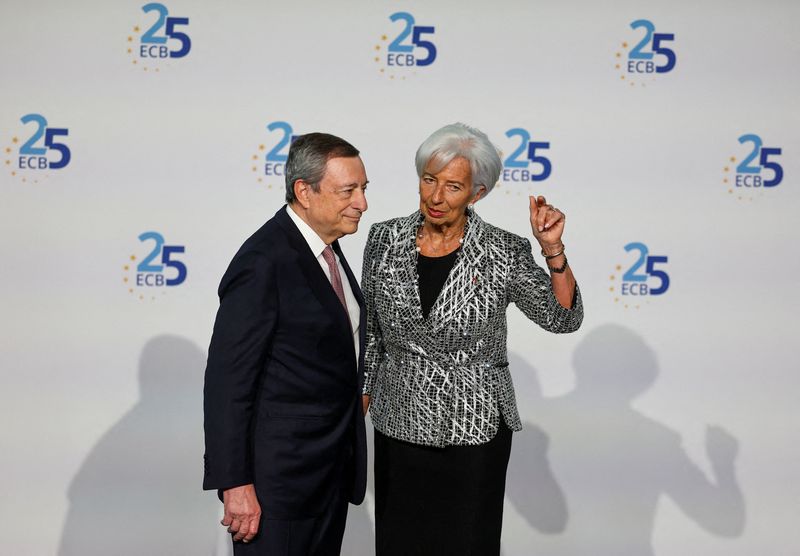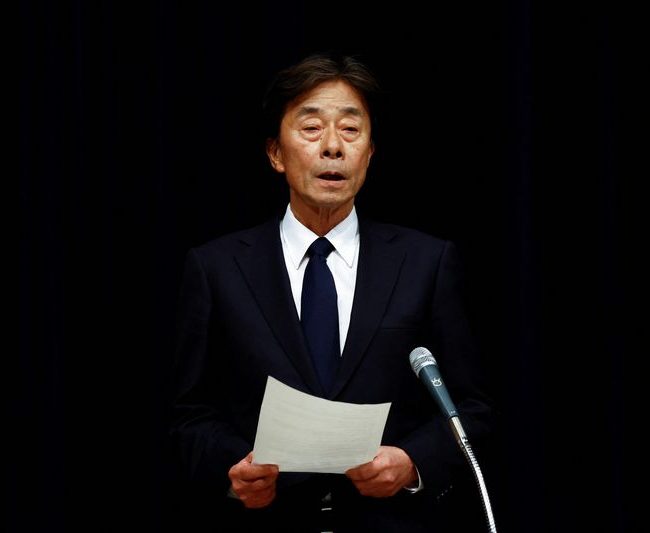
ECB’s Lagarde moves markets with a frown, Draghi with a smile, study finds

FRANKFURT (Reuters) – The European Central Bank’s President Christine Lagarde can move financial markets with a frown, while her predecessor, Mario Draghi, used a smile to reinforce his message, a new study has found.
Traders are known to hang on to central bankers’ every word for cues on the direction of interest rates.
But an academic paper entitled “The Emotions of Monetary Policy” has found that even a change in facial expression or tone can affect market prices.
Researchers from Giessen University in Germany used the latest technology to recognise and classify Draghi’s and Lagarde’s facial expressions and vocal emotions during the press conferences that follow the ECB’s interest rate decisions.
Professor Peter Tillmann and colleagues then ran a machine-learning model on the transcripts of those media conferences to gauge whether the message delivered in any given minute was dovish (hinting at lower rates ahead), hawkish (hinting at higher rates) or neutral.
They found that Draghi’s messages — be they dovish or hawkish — had a bigger impact on government bond yields, the euro and euro zone stocks if they was accompanied by a smile.
“It seems that Draghi ‘kills with kindness’ – his words have the intended effect if spoken with a happy face,” the six researchers wrote in their paper published this week.
Lagarde, by contrast, could boost her market impact with an angry expression.
“For President Lagarde… more anger on her face magnifies the hawkish impact on bond yields,” the study said.
Other results showed Lagarde showed more emotion than her predecessor but both were more likely to express anger the farther inflation in the euro zone strayed, in either direction, from the ECB’s 2% target.
The authors hope the results will make policymakers and traders more aware of the importance of non-verbal communication and emotional undertones.
In the last couple of years, similar studies found that stocks rose when the chair of the Federal Reserve used a positive tone of voice, or that asset prices fell when he or she expressed emotions such as anger, disgust or fear.
The findings will resonate with financial historians: in the early 20th century, Bank of England governors were said to have only needed a raised eyebrow to discipline a banker during private conversations.


